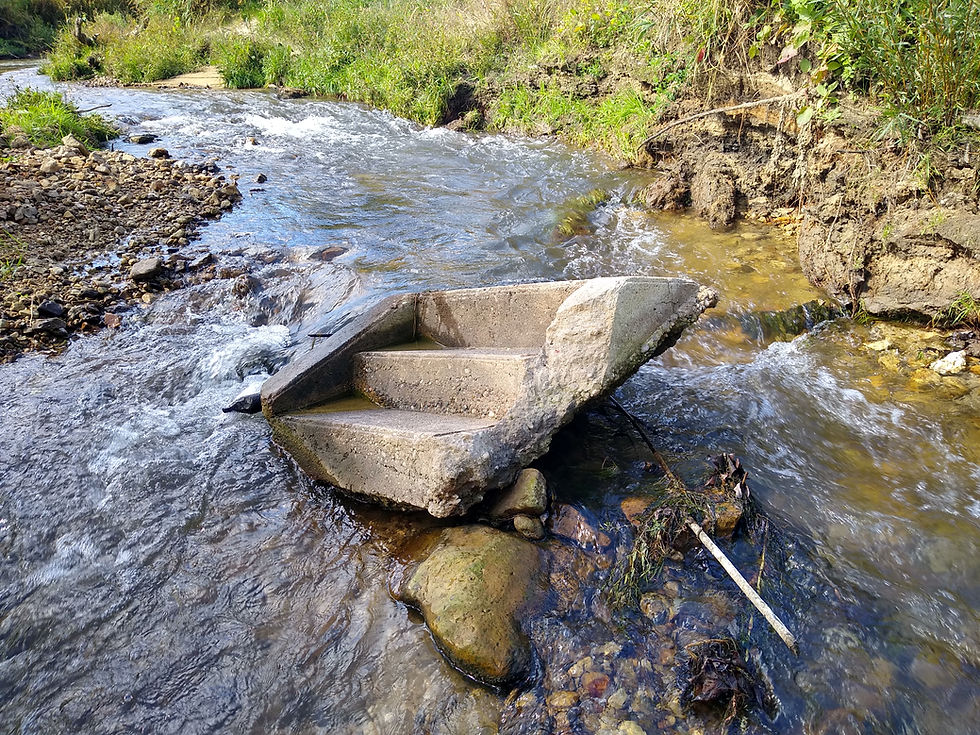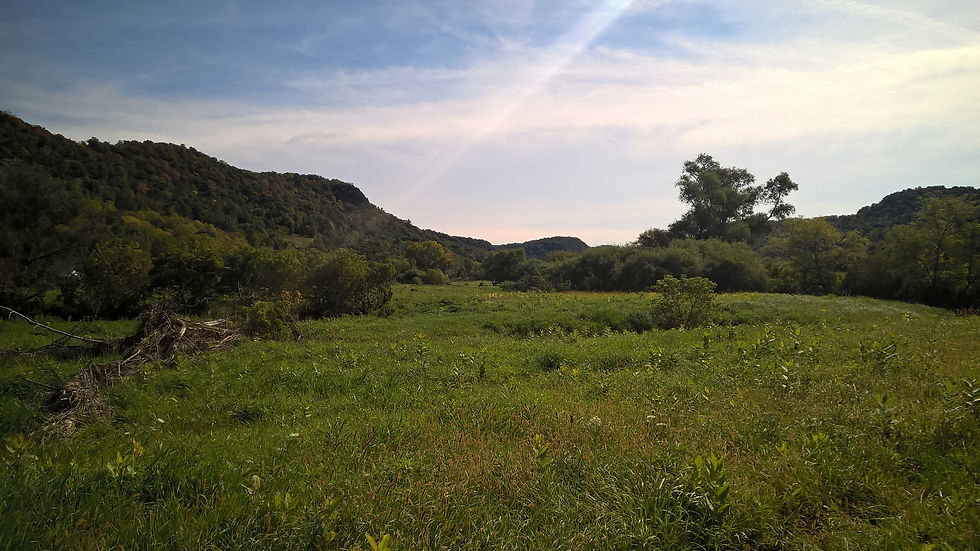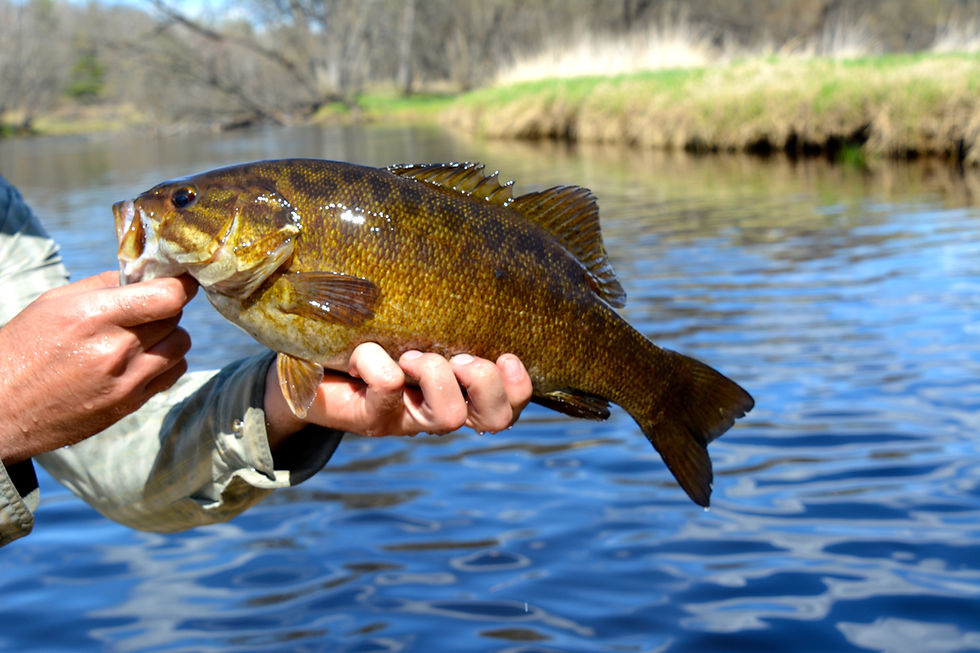Hotspotting - the Lake-Linkification of Fishing
- Jason G. Freund
- Sep 8, 2020
- 5 min read
Hotstpotting. I will not do it and neither should you! Does it really matter? Absolutely, it does.
I'm old enough to remember the days before the "information super highway" was everywhere and finding fishing spots was different. Not better, necessarily, just different. But there is little question that hotspotting is different now. Bear with me young'uns. There was a time that if you wanted to know "where they were biting", you had to go to the local baitshop or fly shop. Or you had to have good friends that would share their knowledge. Funny thing is, there were still places that were overcrowded and overfished. For better or worse, it has become a lot easier to know where they're biting. I think it's mostly for worse...

What I mean by the Lake-Linkification (https://www.lake-link.com/) of fishing is that spots are often quickly "burned" online. I've known too many places that get fished out - or at least fished to the point where they are overcrowded and angler satisfaction is reduced. Once the word gets out that the crappie are biting or the Walleye are running, forget about any solitude. And you can bet that nearly every legal Walleye and 8+ inch crappie gets kept. The worst of it seems to be for ice fishing or the couple of weeks following John Gillespe's show.

I fish the Coon Creek / Timber Coulee system, a lot. I don't consider that hot spotting. There are over 130 miles of trout water on the system and it is no secret to anyone that knows anything about Wisconsin trout fishing or is willing to spend a little bit of time looking at books or the internet. Now, am I going to post my favorite access points or when this spot is better than that spot? HELL NO! Frankly, you really should not expect me or anyone else to "give up their spots", especially not for everyone to see.

In part, much of the fun of fishing is figuring things out for yourself. That is NOT to say that you do not get some help along the way. I have had plenty of great mentors...which will be another post, I'm sure. Great mentors and friends helped me become a better fly tyer and angler. They helped me understand more about when - time of the year and time of day - and where to fish. Where is often less about "the spot" and more about the type of water you are looking for. Sure, they talked about a few spots too but that did less to make me a better fisherman than the rest.
Tim Landwehr of Tight Lines Fly Fishing Co. in DePere, Wisconsin literally wrote the book on Smallmouth Bass fishing (Smallmouth: Modern Fly-Fishing Methods, Tactics, and Techniques). You will not find the names of many rivers in the book but if you read it, think about it, and give some the information in the book a try, you will be a better Smallmouth Bass angler. That is a hell of a lot more valuable than knowing the names of a few Wisconsin Smallmouth Bass rivers or even knowing that smallies are really biting on the Noneyabusiness River right now.

I totally understand why people ask for spots or where they are biting online. I also get why people are reluctant to divulge much information online. And why the standard answer on most of the Wisconsin Facebook pages is to consult the regulations book, which is truly an amazing free resource in Wisconsin. Pick up a copy at any place that sells licenses or DNR Service Center. I also understand why people are not always content with that answer. Ask me in private, I might give you a few good tips on places to fish. I might tell you where I've fished recently and how I've done. Ask me in public and there is no way in hell I'm "outing" spots on the internet.
Inexperienced fly anglers want - probably more accurately - need some success or fly fishing just becomes one big frustration. We all needed a little positive reinforcement. It is frustrating to wave a rod around and not catch fish. It is frustrating to watch others catch fish while you are struggling. The fly fishing learning curve is steep. There are lots of moving parts. However, finding better spots is very rarely the answer. Developing skills will catch you more fish, no matter where you fish. This is where experienced anglers can help. When I was learning to fly fish, a fellow angler saw my struggles and showed me how and where he was fishing a scud. I caught a few fish, gained a some confidence, and over time, I learned to fish nymphs more effectively. That part took some time and effort.
"Better" spots are not going to make you a better angler for the most part. It is probably not the answer a lot of people want to hear.

At least for Wisconsin - and I am sure it is true of most states - there are a TON of great resources available. Here's a pretty good list to get you started.
Previous post: Fishing the Internet for Spots
Books and Online Resources:
Maps:
Online Maps - Wisconsin Trout Stream Maps (by County)
Online Map - Wisconsin TROUT Tool (WDNR)
Online Map - Wisconsin DNR Public Access Lands
Hatch Charts and Resources:


Komentar